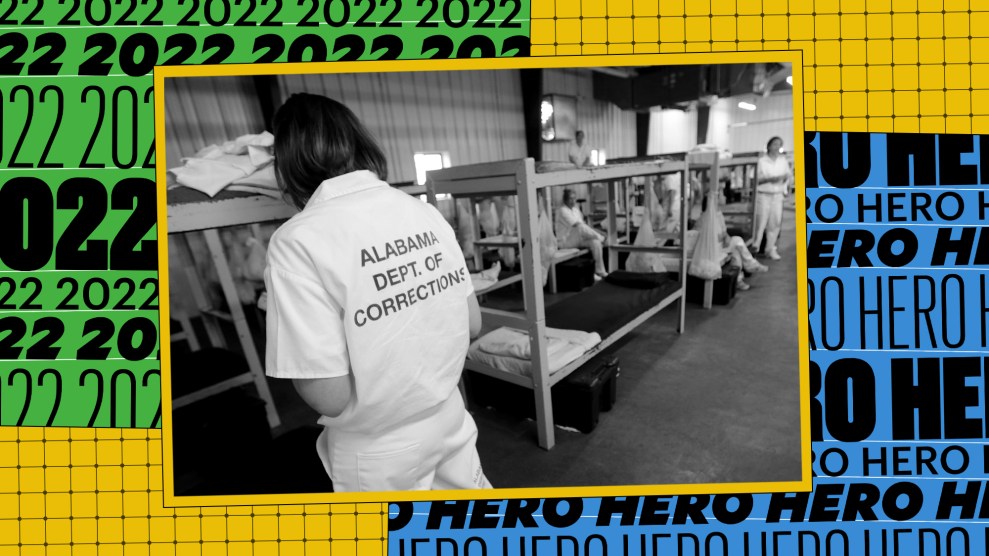There is something odd about the relationship between GOP fabulist George Santos and Andrew Intrater, a sophisticated and wealthy New York financier, Republican donor, and cousin to sanctioned Russian oligarch Viktor Vekselberg. Intrater was one of Santos’ top political donors. At Santos’ behest, he invested hundreds of thousands of dollars with a firm where Santos worked. And even after this company was accused by the Securities and Exchange Commission of running a Ponzi scheme that threatened Intrater’s investment, Intrater and his domestic partner continued to pour money into Santos’ political campaign. What’s the explanation for his curious and sustained support for Santos? Intrater, Mother Jones has learned, the wealthy head of a sizable investment fund—seemingly as savvy an investor as they come—has told associates that he, like others, was conned by Santos.
The bizarre tale of Santos, the world-champion Long Island liar and conniver who’s now in Congress, has myriad subplots: his alleged criminal past in Brazil, the mysterious origins of millions of dollars he claims to have earned in the past three years, his suspicious campaign finance shenanigans, and much more. One of these involves his interactions with Intrater, who hit the headlines in 2018 for having hired Michael Cohen, Donald Trump’s personal lawyer, as a business consultant after Intrater made a whopping $250,000 contribution to Trump’s inauguration committee. Intrater ran an investment business then named Columbus Nova that had deep and direct ties to Vekselberg’s Renova Group conglomerate. In April 2018, Vekselberg and the Renova Group were sanctioned by the Treasury Department for assisting Russian President Vladimir Putin’s “malign activity around the globe.” After Russia’s invasion of Ukraine last year, Spanish authorities seized Vekselberg’s $90 million yacht at the request of the United States.
Intrater has been one of Santos’ most generous patrons. During Santos’ first congressional bid in 2020, Intrater and his girlfriend, Diana Pentinen, each donated the maximum amount of $5,800 to his campaign. In 2022, they went much further, sending over $67,000 to Santos’ campaign and political committees backing Santos. Though Intrater made donations to over two dozen other Republican House and Senate campaigns that year, Santos, by far, received the most support. Intrater also donated $100,000 to Rise NY PAC, a New York state political committee connected to Santos. (Santos’ sister, Tiffany, was paid by this PAC.) Pentinen donated to no federal candidates other than Santos. Intrater and Pentinen each also donated $60,829 to then-Rep. Lee Zeldin, the GOP candidate for New York governor.
And there’s more: Intrater had a significant financial connection to Santos.
In 2020 and 2021, Santos worked as the New York representative for a Florida-based investment firm called Harbor City Capital. But on his financial disclosure forms covering those years he listed no income from the company. (Santos, though, did receive some form of payment this firm.)
Copyright
© Mother Jones



